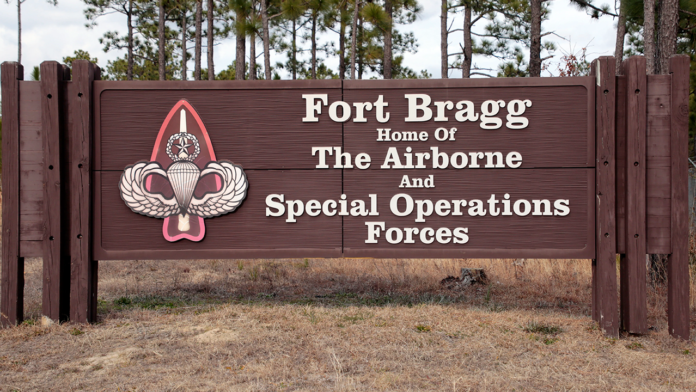Fort Liberty is reverting to its name many have come to love in the same way be the name Fort Bragg. Secretary of Defense Pete Hegseth signed this decision. As if that’s not enough, there’s a twist with this name change. This comes without a change for the better in military history. From being named after a controversial Confederate General Braxton Bragg to a World War II hero Private First Class Roland El Bragg, the installation will now carry his name. This blog post discusses the implications of the change, the history behind the name, and the discussion on military installations and their namesakes.
Fort Liberty Name Change Journey
It is not a direct path from Fort Bragg to Fort Liberty and back again. Named after General Braxton Bragg, a rather infamous military leader of the Confederate, the post was termed Fort Liberty in June 2023. In 2020, George Floyd’s murder sparked a racial reckoning in the United States, which led to a greater push to remove the names of Confederate-supported military installations.
In 2022, an Army commission recommended renaming nine military bases, including Fort Bragg, to Confederate officers. The plan was supposed to be a way to unify the country and symbolize a diverse military culture. The new name, Fort Liberty, symbolizes the values that service members represent, according to Gold Star mother Patty Elliott who lost her son while serving in Iraq. She hoped that this name would bring unison for the troops and for the community at large.
New Twist Honoring a Hero
Fast forward to October 2023, and the name has changed once again. The post will now honor Private First Class Roland El Bragg, a soldier who received the Silver Star and Purple Heart during the Battle of the Bulge. Questions arise as to how military installations honor their history and the individuals they choose to commemorate.
Hegseth said in signing the memorandum that this change emphasizes the installation’s legacy of recognizing extraordinary service and sacrifice. Even though the name “Fort Liberty” was meant to be a symbol of a more abstract ideal, naming the post after an individual moves the focus back to the personal sacrifice and heroism of the individual.
Also read: Trump Orders End to Penny Production in 2025
The Cost of Change
Renaming Fort Bragg to Fort Liberty will cost taxpayers an estimated $6.7 million to cover everything from new signage to administrative updates. The financial implication of changing it back to Fort Bragg remains unknown, but with continued budget cuts, no one knows how much more taxpayer money will be spent on a second name change.
This financial burden sheds light on what otherwise is not considered: the expense of the renaming of the military bases. Prior attempts by stripping names tied to the Confederacy have been resisted and financially battled through politics. What balance can be found in the balance between honoring history and looking toward a greater inclusive story?
Community Reaction and Political Repercussions
This reaction among the community has been polarizing. For some, changes such as renaming are steps toward inclusion, but to others, they translate into an eradication of history. The rapid shift back to Fort Bragg reopened the controversies regarding the Confederates’ legacies in naming buildings and structures for the military.
Former President Donald Trump, who ran for his re-election presidential campaign, opposed the changes in names to express his opinion on the original name of Fort Bragg. He, therefore, holds significant political power, and at the moment, it is bound to have an immense influence on current debates related to military names and the impacts they make.
Context of Naming Conventions of Military Institutions
This renaming saga is part of a bigger movement within the military to reassess the names of installations, ships, and other assets that may hold ties to a controversial past. The Naming Commission, established by Congress, continues to evaluate these names, ensuring they reflect the values of the modern military.
This institution, being the most traditional among all, has also been summoned to be a leader in the challenge: respect for history and a need to adapt to contemporary values. This is the only way that the dialogue between these two extremes will continue and be successful in creating an inclusive and representative military environment for all service members.
Also read: Why Meta layoffs Employees in 2025: 3,600 Jobs Cut
A Name for the Future
The change from Fort Liberty to what is now Fort Bragg-as named after Private First Class Roland El Bragg-is a landmark in military history, showing the dilemma of honoring the past and at the same time looking toward a bright future. An open discussion about namesakes and their legacies is crucial to such conversation as this, one which allows history and the ideology of current society to be honored.
The renaming of Fort Bragg reminds us that names carry power. They reflect the stories we want to tell and the values we stand for in the community. In the long run, this means that not only should individual sacrifices be honored in the naming of places but also the ideas of liberty and unity that everyone who serves under them fights for should be made audible.








